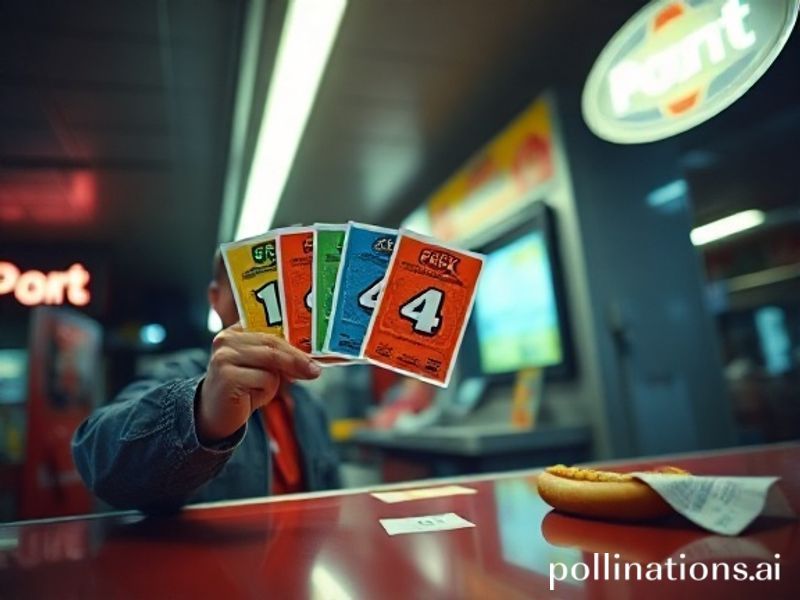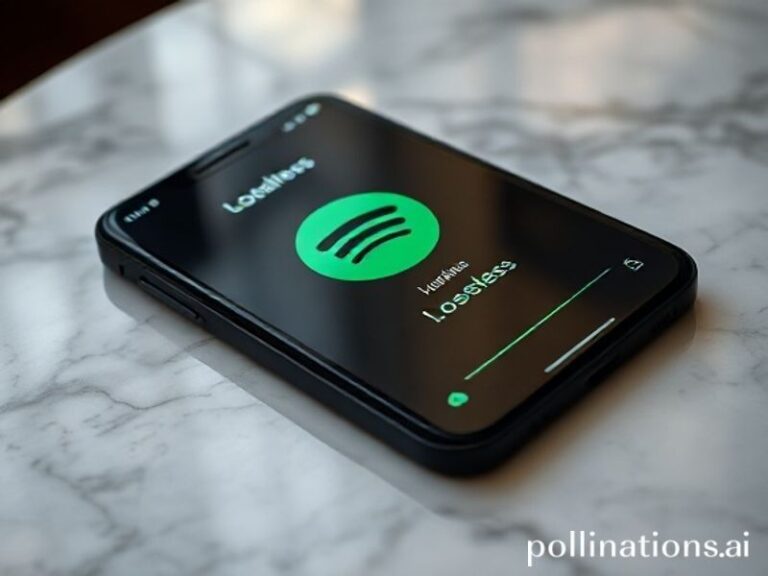Pick 4: The World’s Favorite Four-Digit Escape Hatch
Dakar, Senegal – While war correspondents tally artillery shells in Eastern Europe and climate scientists measure glacial retreat in millimeters, a quieter global arms race churns in fluorescent kiosks from Manila to Manchester: the humble Pick 4 lottery. Four digits, one dollar, instant existential audit. From the barrios of Santo Domingo to the commuter belts of Kuala Lumpur, humanity has decided that the most rational response to inflation, pandemics, and the general collapse of late-stage capitalism is to bet the grocery money on 7-2-8-4.
Walk into any corner store from Lagos to Lima and you’ll find the same ritual: a customer squints at a glowing screen like a monk deciphering prophecy, whispers four numbers that usually commemorate a dead aunt’s birthday, and hands over crumpled currency with the solemnity of a UN treaty signing. The cashier, a graduate in molecular biology now reduced to destiny’s tollbooth operator, prints the ticket with the resigned efficiency of someone who has seen the same losing combinations since dial-up internet.
Officially, Pick 4 is a local game, but the contagion is planetary. In Australia, punters hedge drought losses with “rainfall” numbers; in Lebanon, citizens play the price of a tank of gasoline. The Chinese government bans private lotteries yet runs a state version whose proceeds allegedly finance rural bridges—bridges, cynics note, that villagers can’t afford to drive across because they spent their transport budget on four digits. Meanwhile, crypto bros in Dubai have tokenized Pick 4 on the blockchain because nothing says decentralization like wagering on the same four numbers forever.
Statisticians insist the odds are 1 in 10,000, which, reassuringly, remain better than your chances of affording a house within commuting distance of your underpaid job. Economists call it a regressive tax on desperation; philosophers call it performance art depicting the human condition. Both miss the point: Pick 4 is the last truly global language. Mandarin, Spanish, Python—none unite us like four integers shouted across a bodega counter.
There are geopolitical implications. Venezuela’s central bank once printed the previous day’s winning Pick 4 on new bolívar notes because hyperinflation rendered the denominations meaningless anyway. In post-Brexit Britain, betting shops report spikes whenever the pound dips, suggesting currency traders unwind by picking the very numbers that will never offset their losses. And when Haiti’s 2010 earthquake leveled Port-au-Prince, survivors queued not for water but for tickets bearing 1-2-1-0, the date of the disaster—proof that even cataclysm has a marketing department.
The dark punchline? Occasionally, someone wins. Last year a forklift driver in Łódź hit 5-5-5-5 and pocketed roughly two years of Polish median income, promptly moving to rural Portugal where the cost of living is low and the Wi-Fi spotty enough to prevent further gambling. He now grows olives and refuses interviews, having learned that the only thing less dignified than losing at Pick 4 is explaining to a journalist why you ever believed 5-5-5-5 was destiny’s hot tip.
Still, the world keeps scratching. Because amid supply-chain snarls, vaccine nationalism, and the creeping suspicion that democracy’s firmware was last updated during dial-up, four digits offer a rare binary clarity: you’re either suddenly solvent or tomorrow’s ramen tastes the same. The house, naturally, always wins—unless the house is in Ukraine, where a missile recently converted a Kyiv lottery kiosk into abstract art, scattering unscratched tickets across the boulevard like snowflakes of unfulfilled hope.
As night falls over Dakar, the kiosk lights flicker to life again. A teenager studies the previous draw—3-0-4-9—and calculates that if he reverses the order, subtracts the month of his mother’s death, and adds the age he’ll never reach if his dinghy capsizes en route to the Canaries, he just might crack the code. He steps forward, pays 500 CFA francs, and receives the small rectangle that stands between him and the rest of his life. Somewhere, a satellite tracks his phone, a hedge fund shorts the local currency, and a climate model predicts the next failed harvest. But for one suspended moment, four numbers are enough.







